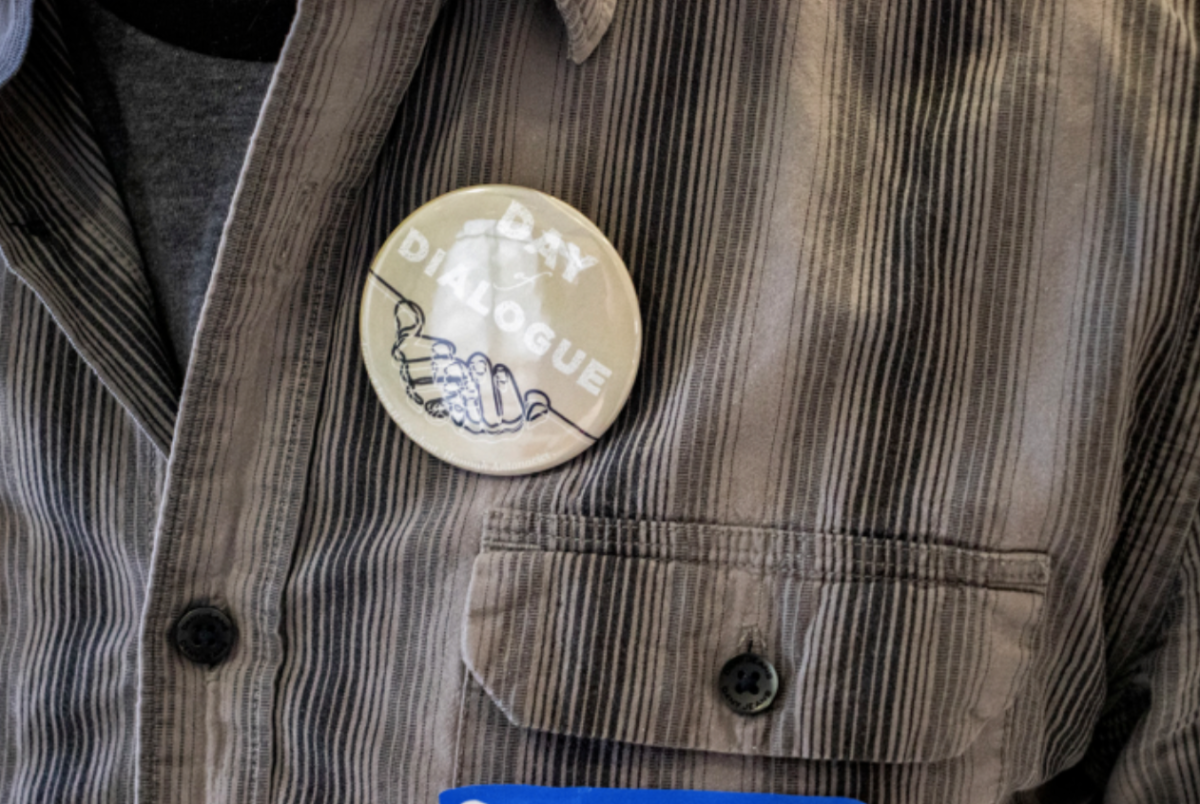St. Joe’s third annual Day of Dialogue is taking place on Feb. 16 beginning at 9:30 a.m. The day-long event will host panels covering many topics surrounding diversity, equity and inclusion in a conference-style day of panels in-person and online, according to Nicole R. Stokes, Ph.D., associate provost of Diversity, Equity and Inclusion.
“We treated this like an academic conference,” Stokes said. “We put out a call for proposals with some thematic focus and invited the communities to put in presentation proposals. They had to submit an abstract and some learning outcomes to say what the session would give participants. It was a really comprehensive process.”
The themes for Day of Dialogue this year are allyship, advocacy and agitation, identities and intersectionality, equity in our communities, social and environmental justice, global and international perspectives, health, wellness and wellbeing and media and representation.
“One of the themes that the dialogue committee was very excited about was focusing on DEI issues but also looking at them from a lens of STEM and healthcare delivery as a way to welcome our new colleagues from the University of the Sciences,” Stokes said. “We really did want our keynote speakers to reflect that, as a way of inviting them into the event and also educating our own community around these issues and how they relate to diversity, equity and inclusion in this particular way.”
According to Stokes, 2,074 people registered for the event as of Monday, Feb. 14. Registration for the event closed on Feb. 9.
On the inaugural Day of Dialogue in 2020, 1,100 students, staff and constituents attended. In 2021, over 1,700 people attended. All classes for Feb. 16 are canceled, unlike the first Day of Dialogue in 2020. The university also requested that faculty and staff not hold meetings or sessions during that day so more community members could attend Day of Dialogue events.
“I do think there’s been really positive responses from that,” Stokes said. “I think each year, the university’s commitment to the event gets deeper, which is really affirming and really great to observe.”
Different events scheduled for this year’s Day of Dialogue include panels such as “Addressing Microaggressions in the Classroom,” “Anti-Racism Training for
Faculty & Staff: Barnes Foundation Lessons,” and “Identity Crisis Cuisine: Over-looked (African) American Influences in Our Nation’s Food & Drink Traditions.”
The opening keynote “Ending the Legacy of Racism in Medicine” will be presented by Dorothy Roberts, J.D, the 14th Penn Integrates Knowledge Professor and George A. Weiss University Professor of Law & Sociology at the University of Pennsylvania. Leah Thomas, an environmentalist, will deliver the closing keynote “Intersectional Environmentalism: The Importance of Equity and Inclusion in Intersectional Environmentalism.”
The day was organized by the Day of Dialogue 2022 Planning Committee, comprised of student, staff and faculty members and co-chairs Natalie Walker Brown, M.S., director for inclusion and diversity educational achievement, Chontel Delaney, M.S. senior learner experience designer for Technology Support Services, and Janée N. Burkhalter, Ph.D., associate dean and professor of marketing.
Kendall Lightner ’24, a student member of the board, said it was a pleasure to contribute the student perspective to the event.
“It really showed a lot to me that the faculty, administration and the staff were willing to have student voices to get student perspectives,” Lightner said. “It was truly a pleasure to give my perspective to make sure that we’re able to feel seen and heard with me as a representative for them.”
By utilizing faculty and student input, the planning committee had a variety of decisions and choices, such as picking sessions, planning how the day would look and looking at which spaces would be the best to facilitate learning.
James Gordon ’22, another student member of the planning committee, said he had been meeting with the committee once a week since last semester, talking about what each group needed to get done.
“We had to clarify a few things [about session proposals], they could elaborate more and see if they could go more in depth on that” Gordon said. “As for the whole group altogether, it was pretty much just checking in during the semester to see if all the targets were being hit, and just making sure we’re on the right track.”
Lightner said it was a very seamless process to work through and he is excited for attendees to experience the sessions.
“I’m most excited [about the] intersectionality of bridging different communities together to show correlations between us to people who are educated on various topics that they’re interested in or may not have had much education in,” Lightner said.
Elise Welsh ’22 contributed to this article.















































